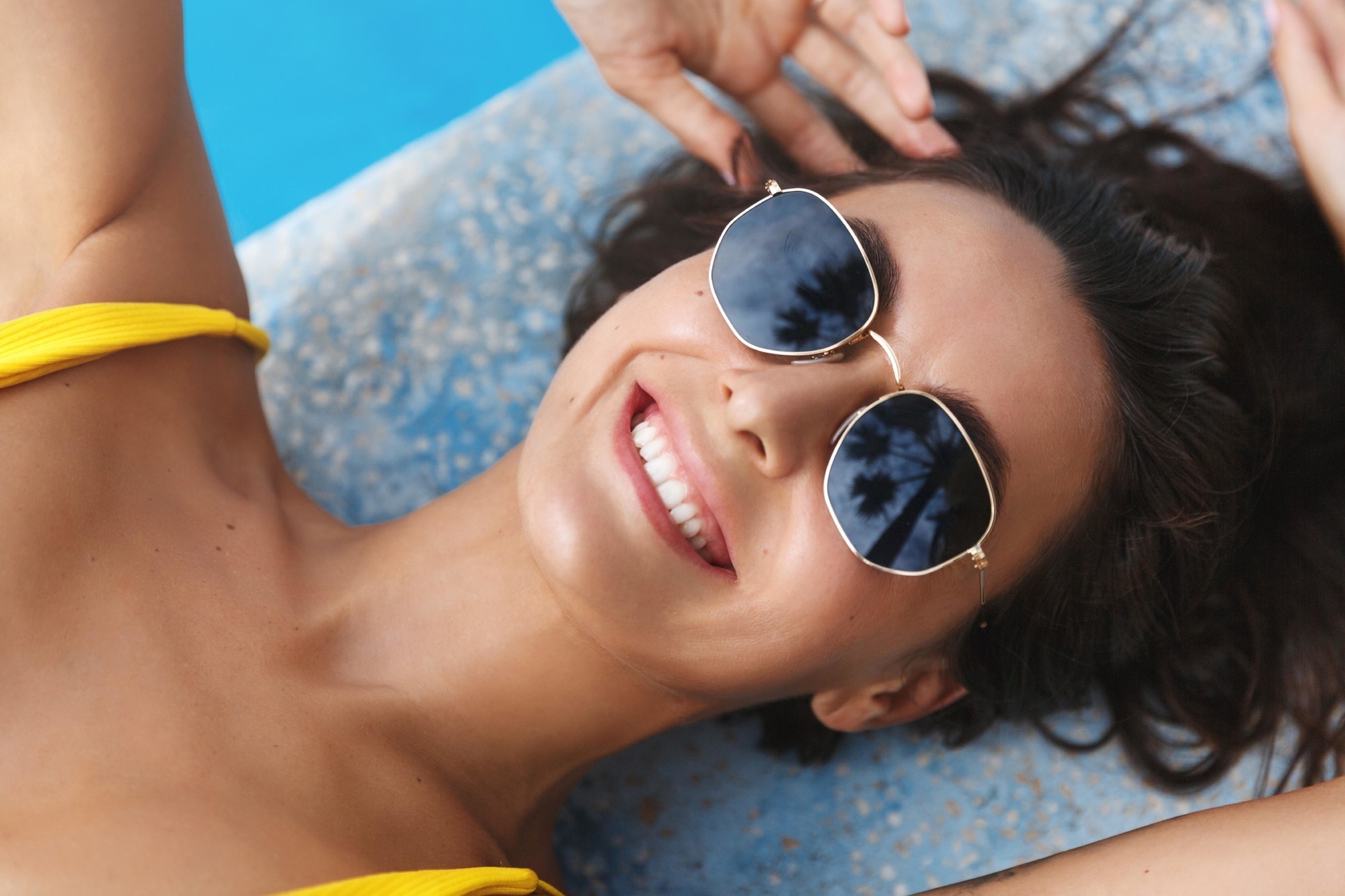Lots of sun cream and no exposure during the hottest hours. As soon as summer arrives, doctors, TV and newspapers remind us to protect our skin from the sun. In recent years, it has also been shown how important it is to protect ourselves even in winter, when we are less exposed to the sun.
What we often underestimate is that exposure to the ultraviolet (UV) solar radiation is not only a problem for the skin, but also for our eyes. Certain conditions, such as aphakia (a condition in which the crystalline lens is not present in the eye) or the use of photosensitising drugs, can make the eyes more sensitive to damage from solar radiation. Furthermore, in healthy people, proper UV protection of the eye can prevent eye diseases such as cataracts and pterygium.
Many studies have evaluated the effectiveness of certain UV protection measures in preventing skin cancer, and the World Health Organisation (WHO) suggests a number of simple precautions to protect oneself, such as wearing hats, sunscreen and staying in the shade whenever possible, especially at midday when sunlight is strongest. These measures have indeed been shown to have an effect in reducing skin exposure to UV radiation and in preventing skin diseases.
What about the eyes?
For eye protection, the main preventive measures are similar to those we use to protect our skin and include wearing hats, sunglasses and staying in the shade, especially during the hottest hours. However, with the exception of studies focusing on the use of sunglasses, studies that explore the effectiveness of protective measures used to shield the eye from UV damage are rarer than those concerning dermatological problems.
Thanks to a very recent study that provided quantitative data on the protected and unprotected eye when exposed to solar UV radiation, we now know more about which measures are most effective in protecting our eyes from sunlight. The study showed that UV radiation has a biological effect on the eye despite the adoption of various protective measures.
In fact, 8 hours of exposure to sunlight results in an exposure of up to 15 times the limits recommended by the ICNIRP (International Commission on Non-Ionizing Radiation Protection).
Based on recorded measurements, one should not remain in the sun for more than 30 minutes during the summer months without any protection to shield the eyes. On the other hand, if protective measures are taken to shield the eyes, it may be acceptable to remain in the sun for up to 60 minutes in the case of high UV exposure.

The most effective measures in UV eye protection
The study examined different types of sun protection measures taken to protect the eyes from UV exposure during the hours between 8.00 am and 4.00 pm.
According to the results, wearing prescription lenses is the least effective protective measure (reduces exposure by 34.13%), followed by sunglasses (with a significant increase in protection, up to 92.56%), sun visors (93.84%) and hats (95.73% to 96.89%).
As far as sunglasses are concerned, of course the effectiveness of the protection also depends on the degree of safety of the lenses, with a scale ranging from 68.74% to 92.56% of protection.
Similarly, the design of the frame also plays an important role in protecting the eyes from solar radiation. Thus, the attenuation capacity of the sun's rays is highly variable and depends mainly on the size, shape and position of the sunglasses on the face at different times of the day.
Regarding the use of hats, intuitively, UV protection depends very much on the width of the brim and, as with glasses, on how they are placed on the face.
Weather conditions and location on the globe are other variables that could in some way influence the results obtained from the study, which instead considered specific characteristics of ultraviolet light.
Bibliography:
Dr. Carmelo Chines
Direttore responsabile
